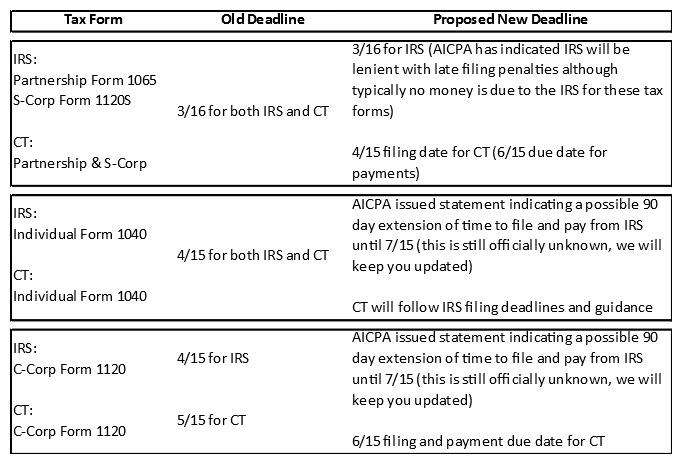Families First Coronavirus Response Act limited analysis
Two provisions which apply specifically to employees, employers and the self-employed.
- The Emergency Paid Sick Leave Act (EPSLA) and
- The Emergency Family and Medical Leave Expansion Act (EFMLEA)
Emergency Paid Sick Leave Act (EPSLA)
Effective on April 2, 2020 provides that employers with less than 500 employees provide up to two weeks or 80 hours of paid and unpaid public health emergency leave through 12/31/20. This act takes precedence over existing employer policies provided by the employees and applies to all employees with no eligibility period. This act applies to both full and part time employees (up to 80 hours for full time employees and average hours worked in a two week period for part time employees).
EPSLA provides that employers must pay an employee his or her regular pay rate for 80 hours over a two-week period subject to a maximum of $511 per day and $5,110 in total if the employee falls under any one of the following three criteria:
- The employee is subject to a federal, state, or local quarantine or isolation order related to COVID-19
- The employee has been advised by a health care provider to self-quarantine due to concerns related to COVID-19
- The employee is experiencing symptoms of COVID-19 and seeking a medical diagnosis
If an employee falls under any one of the reasons below (4, 5, or 6) the employer must pay two-thirds of the regular pay rate up to $200 per day ($2,000 in total) in sick leave for 80 hours over a two-week period:
- The employee is caring for an individual who is subject to an quarantine or isolation order as described in (1) or has been advised to self quarantine as described in (2)
- The employee is caring for a son or daughter of such employee if the school or place of care of the son or daughter has been closed or the childcare provider of such son or daughter is unavailable due to COVID-19 precautions
- The employee is experiencing any other substantially similar condition specified by the secretary of health and human services in consultation with the secretary of the treasury and the secretary of labor
EPSLA tax credits
This act allows an employer to claim a refundable tax credit on Form 941 (quarterly payroll tax returns) in an amount equal to 100% of the qualified sick leave paid for each quarter plus a pro-rata share of the employers qualified health plan expenses (capped at $511/ day for 1-3 and $200/day for 4-6). It remains to be seen if employers can reduce their normal federal tax deposits for the amount of the credit or if they will be able to request an accelerated credit refund in lieu of the payroll tax credit. We expect the IRS to release guidance on this shortly.



